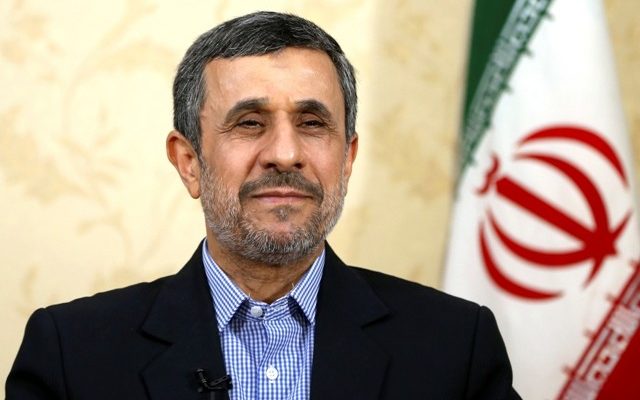As president, Mahmoud Ahmadinejad used his platform to promote Jew-hatred on an international scale and consistently expressed his intention to destroy Israel.
By Associated Press
Iran’s state television reported Wednesday that the country’s former president will run again for office in upcoming elections in June.
Broadcast footage showed Mahmoud Ahmadinejad marching accompanied by supporters to a registration center at the Interior Ministry where he filled out registration forms.
Ahmadinejad in recent years has tried to polish his radical image, criticizing the government for mismanagement.
As president, the Holocaust-denying Ahmadinejad used his platform to promote Jew-hatred on an international scale and consistently expressed his intention to destroy Israel.
He was previously banned from running for the presidency by Supreme Leader Ayatollah Ali Khamenei in 2017, although then, he registered anyway.
Khamenei says he will not oppose the nomination of any candidate, although the electoral council may still block Ahmadinejad’s candidacy. In either case, the populist’s return to the political scene may energize discontent among hard-liners who seek a tougher stance against the west — particularly Israel and the U.S.
Iran opened registration on Tuesday, kicking off the race as uncertainty looms over Tehran’s tattered nuclear deal with world powers and tensions remain high with the West.
President Hassan Rouhani can not run again due to term limits, yet with the poll just a month away no immediate favorite has emerged among the many rumored candidates. There also appears to be little interest in the vote by a public crushed by sanctions and the coronavirus pandemic.
Nevertheless, many view the country’s hard-liners as ascendant — even as the U.S. under President Joe Biden tries to find a way to re-enter the atomic accord.
Whoever wins the June 18 vote will take over from Rouhani, a relative moderate within the Islamic Republic whose two four-year terms began with Iran reaching the nuclear deal. His time in office now draws to a close with the accord unraveled after the U.S. unilaterally withdrew from it under President Donald Trump in 2018.





